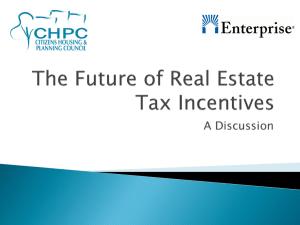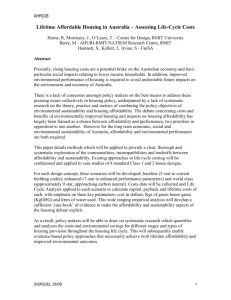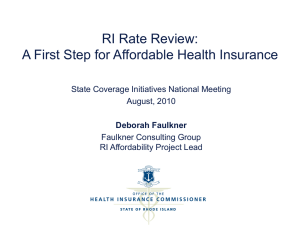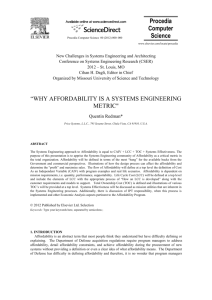Affordability and Offers of Coverage
advertisement
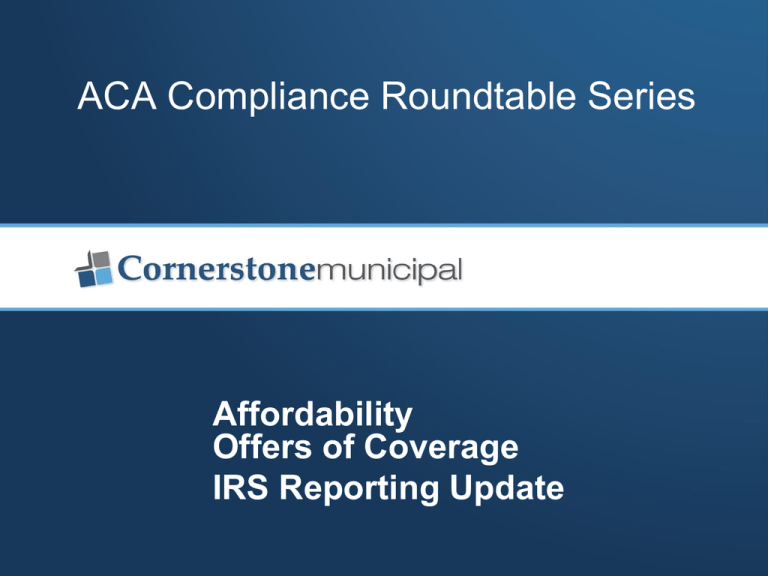
ACA Compliance Roundtable Series Affordability Offers of Coverage IRS Reporting Update Welcome to the ACA Compliance Roundtable Series!!! Monthly discussion of specific health care reform related topics Small group discussions Address individual questions or concerns Possible session topics: Transition Relief Change in Employment Status Related Entity Status Offers of Coverage Break in Service rules Tracking/recordkeeping Application ACA Compliance Continuum Penalty Assessment Affordability Tracking Coverage Status Monitoring Reporting Agenda Affordability Offers of Coverage Requirements Methods Requirements Rules IRS Reporting update Review of newly released forms Affordability Requirements Plans offered to eligible employees must meet the affordability standard – 9.5%. If plans do not meet affordability standard employer could face penalty of $3,000/year X the number of employees who enroll in an Exchange plan. Affordability is determined by looking at the employee’s contribution for single coverage under the least expensive plan available to that employee ONLY. Contributions for the actual plan the employee elects and for dependent or family coverage are not included. Affordability Requirements Three methods of determining affordability – W-2 Wages, Rate of Pay and Federal Poverty Level. Employer may elect to use one method for all employees or different methods for different groups of employees (hourly/salary, different locations, different departments). Must use same method for all individuals in a category May not use a different method for each individual Affordability Requirements July 24, 2014 – IRS changes rate to 9.55% for 2015 for individuals receiving tax credit from the Exchange. Some question as to applicability in employer calculations May be reconciled at a later time Affordability Methods Rate of Pay Cannot be used for employees paid on commission or tips or nonhourly employees whose pay is reduced during the year. Must use lowest rate of pay for the employee during the month. Determined on a monthly basis. If coverage is offered for even one day during a month, must determine affordability for that month. Affordability Methods Rate of Pay Hourly employee formula – Lowest monthly single contribution Hourly rate of pay X 130 Non-hourly employee formula – Lowest monthly single contribution Monthly salary Affordability Methods W-2 Wages Use wages from box 1 of the W-2 Affordability is determined at the end of the calendar year Affordability is determined on an employee by employee basis May not use this method if employee contribution (for lowest single coverage available) changes during the plan year Affordability Methods W-2 Wages Salary amount pro-rated if coverage not offered for the entire calendar year. Example, employee was employed from May 15 – December 31 and is offered coverage from August 1-December 31 Wages found in Box 1 would be prorated (5/8) to determine if coverage was affordable If employed or offered coverage for one day in the month it is included in the proration calculation Affordability Methods W-2 Wages • Hourly and non-hourly employee formula Full amount of employee contribution (annual or prorated) Amount from Box 1 of W-2 (or prorated amount) Affordability Methods Federal Poverty Level • Cost for lowest cost single only coverage does not exceed 9.5% of single individual Federal Poverty Level. • Federal Poverty Level for 2014 = $11,670 • 9.5% of $11,670 = $1,108.65/year • $1,108.65/12 = $92.39/month Affordability Methods Federal Poverty Level • If the employee contribution for lowest cost single coverage available is $92.39 per month or less the plan is deemed to be affordable REGARDLESS OF AN EMPLOYEE’S ACTUAL WAGES • FPL is released each January/February • Employer can rely on figures in force up to 6 months before the start of the plan year Affordability • Perform calculation using all three methods • Determine which calculation has the most advantageous result • Must use FPL method if attempting to report using “Qualified Offer Method.” • May use any affordability method if using General or 98% reporting methods Group Discussion Offer of Coverage Requirements • Coverage must be offered to at least 95% of “full-time” employees • 70% in 2015 • Employers with 50-99 FTE do not need to comply until 2016 • ACA does not require employers to actually cover employees – only require coverage to be offered • An offer of coverage from one ALE member of a controlled group is considered an offer by all members of the controlled group Offer of Coverage Requirements • If the plan meets MV and the employee’s cost of coverage (lowest cost single coverage) is equal to or less than 9.5% of the FPL it will be assumed that coverage has been offered • Offer for coverage made to a union during negotiations is not considered an offer of coverage • If offer of coverage is made by a staffing firm on behalf of an employer the fee paid to the staffing firm must be higher than the normal fee. Offer of Coverage Rules • Employee must have the opportunity to enroll in coverage at least once per year • If coverage does not provide minimum value or is not affordable, employee must be given the opportunity to decline coverage at least once per year • Continuing previous year’s election qualifies as an offer of coverage if the employee does not elect to opt out Offer of Coverage Rules • Employer not required to obtain a signed statement from the employee • • Employer may want to consider requiring a signed statement Coverage must be offered to employee and certain dependents • Spouse – not required • Children up to age 26 and Adopted Children – required • Stepchildren and Foster Children – not required • Children must be offered coverage for the entire month in which they reach age 26 Group Discussion Reporting Forms Reporting Forms • Draft forms released on July 24, 2014 • 5 forms released • Form 1095-A only used by insurance carriers on the Exchange • Forms were released without instructions • Instructions currently scheduled to be released during August 2014 • Same forms required regardless of Reporting Method used Reporting Forms • Employers having over 50 FTE and offering fully insured coverage will be required to file Forms 1094–B and 1095–B • May be completed by the insurance carrier Reporting Forms Reporting Forms Reporting Forms • Self funded employers with over 50 FTE will be required to complete Forms 1094 – C and 1095 – C. • Unless a “Simplified Reporting Method” is used. Reporting Forms Reporting Forms Reporting Forms Reporting Forms Group Discussion Questions




